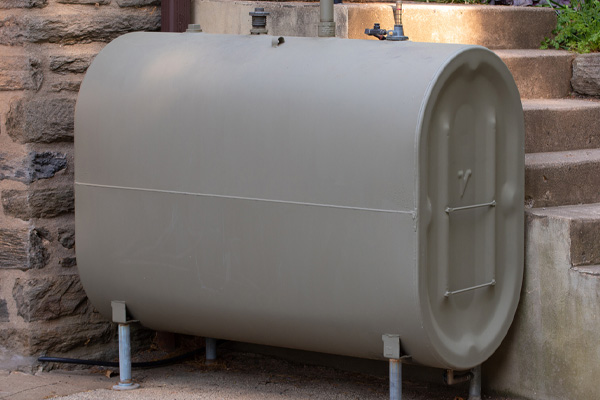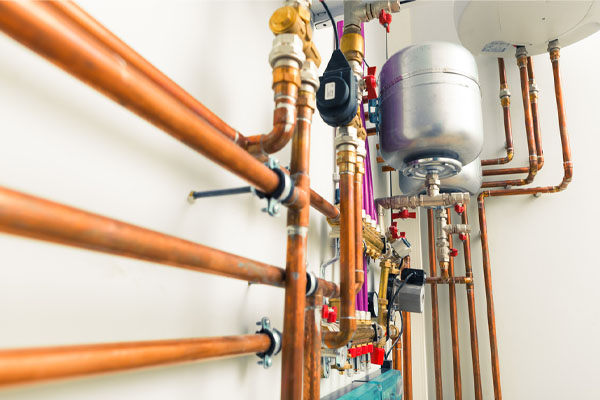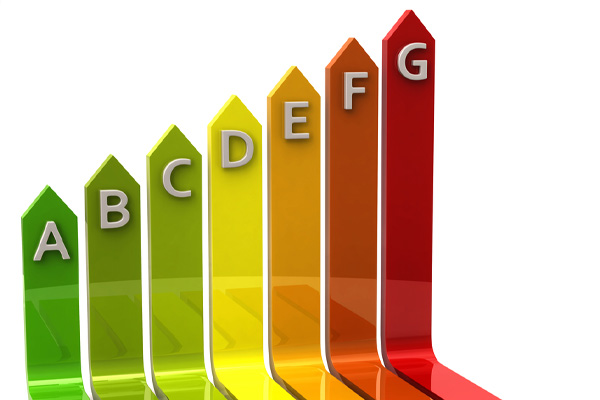
Heating expenses can significantly impact your monthly energy bills. It accounts for nearly half of your overall costs, which surpasses the energy consumption of other household appliances. For substantial savings, directing your attention toward heating efficiency is important. Some methods to enhance efficiency yield more noticeable results than others, such as routine heating oil filter replacements. For today’s article, we will provide valuable insights into this energy-saving practice.
The Importance Of Regular Heating Oil Filter Replacements
Table of Contents
- 1 The Importance Of Regular Heating Oil Filter Replacements
- 1.1 What is a Heating Oil Filter?
- 1.2 The Importance of Regular Filter Replacements
- 1.3 The Benefits of Replacing Your Heating Oil Filter
- 1.4 How Often You Should Change the Heating Oil Filter
- 1.5 How to Tell When Your Oil Filter Needs a Replacement
- 1.6 How to Change a Heating Oil Filter
- 1.7 Tips for Heating Oil Filter Replacement
- 1.8 Conclusion
- 2 Call Skylands Energy Service For Your Home Heating Requirements
What is a Heating Oil Filter?
Homes with fuel oil-powered heaters are equipped with a vital component known as the heating oil filter. This serves as a crucial intermediary that makes sure the fuel undergoes filtration to eliminate impurities before it reaches the burner. Its primary function is to shield against the accumulation of dirt and moisture that might obstruct the fuel nozzle and maintain the pump’s optimal functionality. A functional filter is essential to prevent system lockouts and safeguard your equipment from potential damage.
Related Article: What Is A Double-Wall Heating Oil Tank?
The Importance of Regular Filter Replacements

Oil filters are very effective, but as they capture more and more dirt, they become less and less effective. The more dirt they collect, their pores become less permeable. This decline in porosity results in a reduction of the oil flow rate until it eventually stops. Occasionally, accumulated dirt can even find its way into the system, causing clogs. To prevent this, replace the oil filter before these complications arise. Keep in mind that the new oil filter replacement will eventually undergo the same process. Filter replacement should be a recurring item on your heating system maintenance checklist. Changing filters is a quick and straightforward task.
The Benefits of Replacing Your Heating Oil Filter
Although replacing the oil filter may appear to be a minor chore, HVAC experts will tell you how important it is for your heating system. Do not underestimate the advantages it can bring. Here are just a few of the benefits associated with heating oil filter replacement:
Related Article: How Oil Heating Systems Work
1. Improve Equipment Reliability

Heating systems rely on a consistent supply of clean oil for optimal performance. Any factors that disrupt this supply, such as clogged filters, can lead to decreased efficiency. This could result in your heating system struggling to warm your home. It can even lead to a system breakdown. This can leave you and your loved ones cold during the winter months. To avoid such situations, prioritize regular maintenance. Make sure you replace the filter at scheduled intervals to maintain smooth and efficient operation.
Related Article: Wi-Fi Thermostats for Oil Heat
2. Maintain High Heating Efficiency

Over time, components of your heating system experience wear and tear. While dirt accumulates, it leads to a gradual decrease in efficiency. Inefficient furnaces require more fuel to generate heat. To maintain high-efficiency levels, arrange for annual professional maintenance for your system. During their visit, HVAC technicians can conduct a comprehensive tune-up. Do not overlook the importance of adhering to the manufacturer’s recommended schedule for changing the oil filter. These practices will help keep your HVAC system operating as efficiently as it did when it was new.
Related Article: What Do Heating Oil Additives Do?
3. Prolong HVAC Service Life
New oil filters play a crucial role in maintaining the cleanliness of your home heating system. They serve as a protective barrier against hazardous clogs and potential dangers. They contribute to the longevity of the system by reducing stress on individual components. This means you won’t have to invest thousands of dollars in an early HVAC system replacement.
Related Article: How to Read Your Heating Oil Tank Gauge
4. Save Money

As we have discussed, clean filters contribute to reduced energy consumption. In addition to their positive environmental impact in reducing emissions, they also help homeowners cut down their energy expenses. By maintaining clean filters, you can consistently manage and control your heating costs yearly.
How Often You Should Change the Heating Oil Filter
The minimum suggested interval for filter replacement is once a year. It is better to perform this before the heating season starts to guarantee seamless operation. Keep a vigilant eye on your system’s performance for any signs of decline during winter. If you encounter filter clogs, increase the frequency to twice a year. Conduct a replacement midway through the season to prevent any recurrence.
Related Article: Can Diesel Be Used As A Temporary Heating Fuel In Your Home?
How to Tell When Your Oil Filter Needs a Replacement
- Slow Start: If you have been using your furnace or boiler for a long time, you are likely familiar with its typical behavior. Be attentive to any unusual signs like delayed start or unfamiliar noises. Such behaviors could indicate a struggling system due to a clogged filter.
- Dark Smoke: Normally, you should see light-colored smoke coming from the chimney. However, the presence of dark smoke is a red flag. It suggests that water is getting through the oil filter. If it has been a while since you last replaced your filter, the oil filter may be saturated with moisture and debris. This means it needs to be replaced.
- Substandard Performance: If your home still feels cold and adjusting the thermostat settings is not helping, it could be a result of a dirty oil filter. This also applies to instances where the heating system unexpectedly shuts down. The blockage may be located within the filter itself or a nearby component.
Related Article: Oil Tank Condensation: What You Need To Know
How to Change a Heating Oil Filter
- Prioritize safety by turning off the power before proceeding with any changes.
- Contain oil drips by placing a pan under the filter to capture any oil droplets.
- Prevent oil flow by turning the shut-off valve on the heating oil tank.
- Disassemble the filter canister by removing the base of the oil filter.
- Remove the cartridge and gaskets.
- Clean the canister and pump strainer before inserting the new filter.
- Reassemble the canister and mount it securely in its place.
- Restore the oil supply by reopening the supply valve and reactivating the power.
- Release air by loosening the air bleeder screw to allow any trapped gas to escape.
- Monitor the oil burner by letting it run and observe its performance.
- Check for leaks by inspecting the system thoroughly.
- If everything appears in order, complete the task by disposing of the old filter properly.
Related Article: How To Determine The Best Oil Tank Size For Your Home
Tips for Heating Oil Filter Replacement

- Protect Your Skin: Oil can cause skin irritation, so wear gloves to protect your hands and arms. Use an apron or similar protective gear to prevent fabric stains.
- Handle the Canister Carefully: Be cautious when dealing with the canister. Make sure you provide ample support with your hand to prevent accidental drops and potential damage to pipes.
- Keep Small Parts Organized: Rings and washers may be small, but they are crucial components of the filter assembly. Be mindful not to misplace or lose them during the process.
- Stay Vigilant: Not all leaks manifest immediately. Some may take up to 48 hours to become noticeable. Keep an eye on your system to detect any leaks that may develop.
- Professional Assistance: Oil filter replacement can be messy and potentially hazardous. If you are uncomfortable with this process, see the assistance of a professional.
Related Article: The Best Ways To Prevent Running Out Of Heating Fuel This Winter
Conclusion
Oil filters prevent clogs in furnaces, ensuring seamless heating system operation. However, their effectiveness diminishes over time, requiring frequent replacement to maintain peak efficiency, reliability, and performance. Schedule regular filter replacements. If you cannot perform this task yourself, get the help of a professional HVAC technician for a hassle-free replacement experience.
Related Article: What Happens When The Furnace Runs Out Of Oil?
Call Skylands Energy Service For Your Home Heating Requirements

When you need top-quality HVAC services in the area, don’t hesitate to call Skylands Energy Service. Our company only has the best professionally certified technicians to help you with your heating and cooling service needs, such as installations, repairs, replacements, and maintenance. You can trust our friendly techs to use their vast knowledge, the right tools, and years of experience to perform accurate and prompt HVAC system services.
Our company offers the most affordable HVAC service rates in the area. If you need to replace your HVAC equipment, we can recommend the most suitable one for your home within your budget. We always prioritize our clients’ indoor air quality, comfort, and energy efficiency. Call Skylands Energy Service today to schedule an appointment, and receive a free, in-home estimate.
Also, take advantage of our reliable and affordable heating oil delivery services throughout Central New Jersey. We have many delivery plans and financing options available to meet your needs. Call now!
Contact us now at (908) 707-1776 to find out more! To view our service area, click here.

